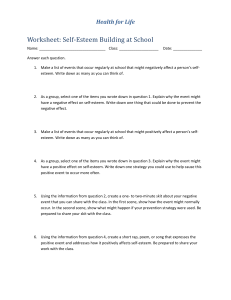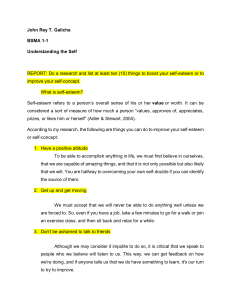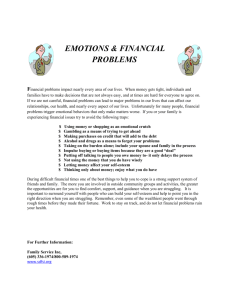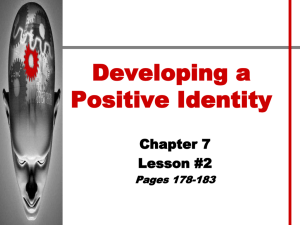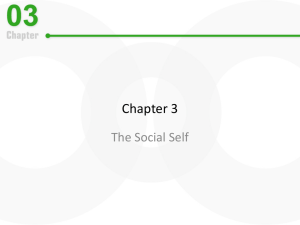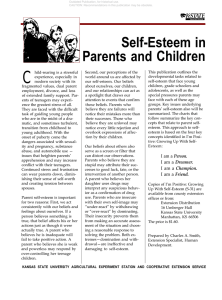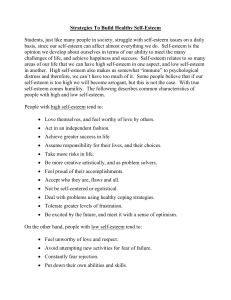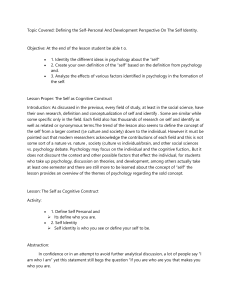How to Improve Your Self-Esteem
advertisement
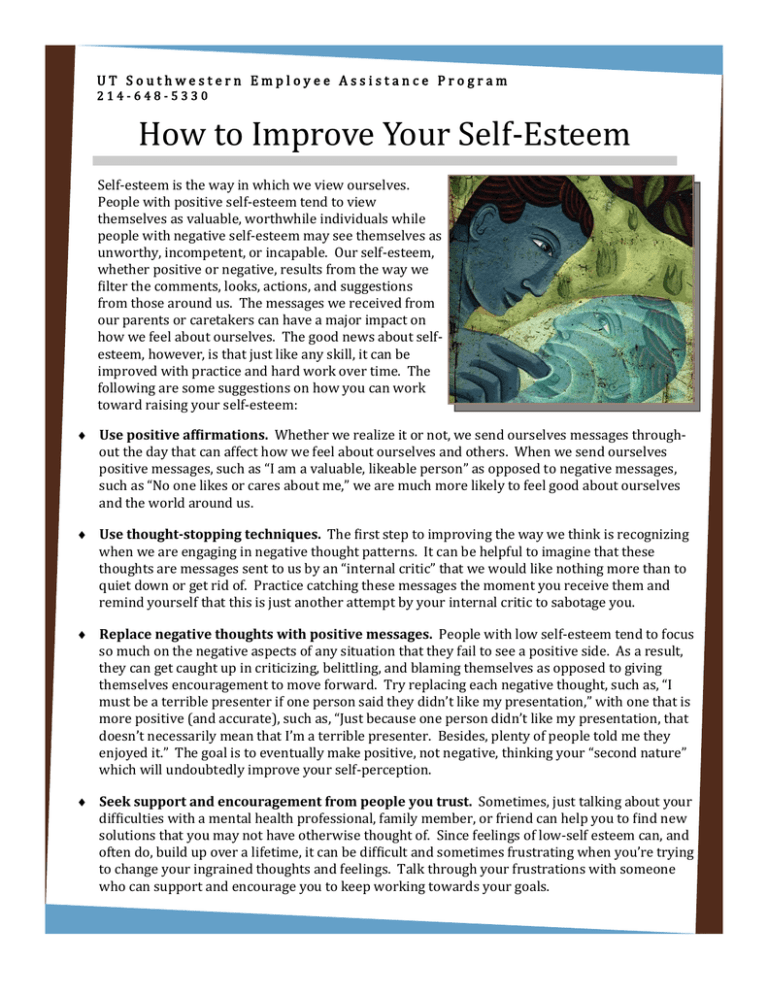
UT Southwestern Employee Assistance Program 214-648-5330 How to Improve Your Self-Esteem Self-esteem is the way in which we view ourselves. People with positive self-esteem tend to view themselves as valuable, worthwhile individuals while people with negative self-esteem may see themselves as unworthy, incompetent, or incapable. Our self-esteem, whether positive or negative, results from the way we filter the comments, looks, actions, and suggestions from those around us. The messages we received from our parents or caretakers can have a major impact on how we feel about ourselves. The good news about selfesteem, however, is that just like any skill, it can be improved with practice and hard work over time. The following are some suggestions on how you can work toward raising your self-esteem: Use positive affirmations. Whether we realize it or not, we send ourselves messages throughout the day that can affect how we feel about ourselves and others. When we send ourselves positive messages, such as “I am a valuable, likeable person” as opposed to negative messages, such as “No one likes or cares about me,” we are much more likely to feel good about ourselves and the world around us. Use thought-stopping techniques. The first step to improving the way we think is recognizing when we are engaging in negative thought patterns. It can be helpful to imagine that these thoughts are messages sent to us by an “internal critic” that we would like nothing more than to quiet down or get rid of. Practice catching these messages the moment you receive them and remind yourself that this is just another attempt by your internal critic to sabotage you. Replace negative thoughts with positive messages. People with low self-esteem tend to focus so much on the negative aspects of any situation that they fail to see a positive side. As a result, they can get caught up in criticizing, belittling, and blaming themselves as opposed to giving themselves encouragement to move forward. Try replacing each negative thought, such as, “I must be a terrible presenter if one person said they didn’t like my presentation,” with one that is more positive (and accurate), such as, “Just because one person didn’t like my presentation, that doesn’t necessarily mean that I’m a terrible presenter. Besides, plenty of people told me they enjoyed it.” The goal is to eventually make positive, not negative, thinking your “second nature” which will undoubtedly improve your self-perception. Seek support and encouragement from people you trust. Sometimes, just talking about your difficulties with a mental health professional, family member, or friend can help you to find new solutions that you may not have otherwise thought of. Since feelings of low-self esteem can, and often do, build up over a lifetime, it can be difficult and sometimes frustrating when you’re trying to change your ingrained thoughts and feelings. Talk through your frustrations with someone who can support and encourage you to keep working towards your goals.


